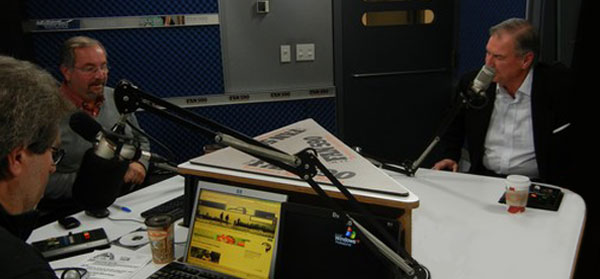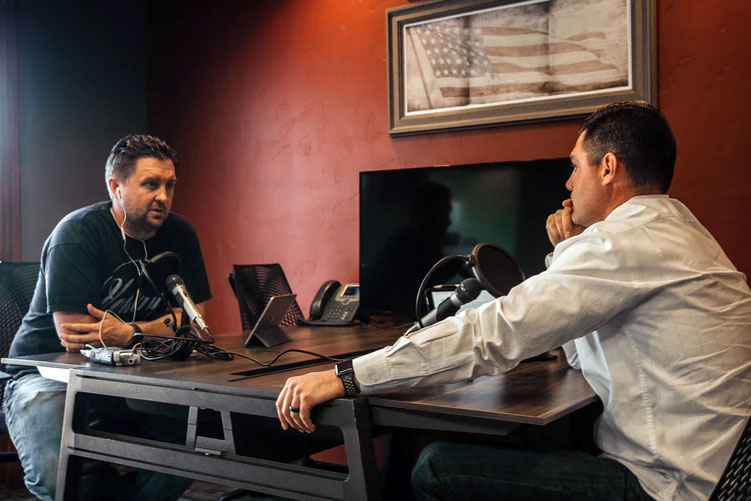

Cathal Kelly’s April 12 2025 article in The Globe and Mail hits the right notes on frustration but misses the core of the problem entirely. He argues that Hockey Night in Canada’s biggest issue is the absence of someone like Don Cherry—a slapper, a disruptor, someone willing to stir things up.
The idea that a single loud personality can fix the HNIC product isn’t just wrong—it’s lazy. It also suggests that the current state of the show is a talent problem. It’s not. It’s a leadership problem. A vision problem. A directional problem.
You could take the entire TNT hockey panel—Liam McHugh, Paul Bissonnette, Anson Carter, Henrik Lundqvist, and yes, Wayne Gretzky—and drop them into a Saturday night on Sportsnet. Would it be a better show? Maybe. For a night. But unless you change the culture behind the scenes, it would still fall flat. Lipstick. Pig.
TNT works because they enable their talent to be great. Not just tolerate them—empower them. They know that good television is created when you let skilled people actually speak their mind. When there’s real energy, real disagreement, and maybe even a bit of chaos.
You don’t get that on Rogers’ Hockey Night in Canada. You get a heavily formatted, paint-by-numbers production. There’s a formula, and no one deviates from it. Kevin Bieksa is the closest thing they have to a disruptor, and even he gets reined in the moment things start to get interesting. The result is a three-hour broadcast with all the texture and tension of a Zoom call.
Kelly’s right about one thing: Hockey Night in Canada is boring. But it’s not because we lack a guy banging the desk. It’s because no one’s allowed to bang the desk. There’s no room for it. There’s no desire for it.
You don’t fix that by finding another Cherry. You fix it by rebuilding the entire ecosystem around the show. You fix it by leading with imagination, setting the tone from the top down, and giving your talent the runway to be great.
The best hockey production in this country isn’t coming from Rogers. It’s coming from Amazon, followed by TSN. Amazon understands pacing, tone, and how to blend polish with personality. TSN still has remnants of the soul that made it the best sports network in Canada for a long stretch. Rogers, meanwhile, has the rights—but no feel for the product.
When I wrote about this back in October, I talked about how disengaged I had become as a fan. Not because I don’t love hockey—but because the experience of watching it had become so uninspired. The broadcast has no soul. There’s nothing urgent about it. It’s just… there. Background noise with high production values.
People aren’t tuning out because there isn’t a Cherry. They’re tuning out because there’s no reason to tune in. Nothing happens. Nothing is said. Nothing sticks.
The OLD format is not relevant anymore. We aren’t longing for yesterday; we want to be led into tomorrow, and no one at Roger’s has demonstrated any ability to do that in any way with sports programming. There is been no innovation whatsoever. Everything you see is either old, borrowed, or stolen. Yes, a talent enema would be nice, but that alone wouldn’t change a thing.
What made Cherry (and yes, even Ron) interesting back then wasn’t just the theatrics—it was the risk. The sense that something real might break through the screen. That doesn’t exist anymore. Everything feels managed. Safe. Corporate.
And that’s the part Kelly missed. This isn’t about a single voice. It’s about creating a culture where good voices can thrive. Until Rogers figures that out, the show will continue to feel like it was made by people who think hockey fans care more about consensus than conversation. The entire format is old, tired, and broken. It’s broken!
We don’t want to watch what they are jamming down our throats repeatedly. We want passion. We want disagreement. We want people who say what they think. But most of all, we want to feel something. It almost appears that some of the panels are staged where at least one of them knows in advance what the others are going to say so they can be safe with their takes.
Here’s a novel idea: try something new!
And until that happens, Hockey Night in Canada will continue to be what it’s become: something to have on in the background while you scroll your phone.
It doesn’t have to be this way. But it’s going to take more than looking for a new loudmouth. It’s going to take actual leadership. And so far, that’s been the quietest voice in the room.

As someone who worked for many years behind the scenes in the Rogers HNIC era, I don’t see a pathway to what you’re describing. You’re correct in your diagnosis – it requires vision, and will. I would argue both are in short supply.
Part of this is a practical problem: the philosophy is that the live rights are the only thing with meaningful value, which is somewhat understandable. But therefore, live rights are the only thing that receives meaningful investment. Raising production value in a way that would make a tangible impact on the viewing experience would require real $$$. I love the notion of all-access features, for example, but they’re ultimately more expensive than paying a talking head a salary – even a lucrative one. And, when you’ve blown billions on rights, the impulse is to claw back cost by investing as little as possible on production.
Best case, you might get a watered-down version of features in the form of “branded content”, which will never be driven primarily by editorial considerations, but rather by the priorities of the sponsor. Is Quinn Hughes driving a Jeep Wagoneer to a driving range compelling? Maybe not, but hey, it’s got a revenue stream, so whatareyagonnado?
Traditional ad revenues just don’t matter as much anymore, and given those rates are negotiated by the number of eyeballs watching a game, it’s effectively diminished the audience’s power to influence what gets onto the broadcast. The viewer experience is not the priority. The live game is the priority, and everything else will be done as cheaply as possible.
Prove me wrong, Rogers!
You raise great points, but ultimately it is this, “when you’ve blown billions on rights, the impulse is to claw back cost by investing as little as possible on production.” which is why it feels like the top execs make the deal and lower level ones have to clean up the mess when the numbers don’t meet expectations. The biggest loser is the consumer and they vote with their eyes, and we are seeing that now as HNIC demographics are aging and that is not a good thing as younger audiences demand newer, fresher ideas.
They tried something different before by pushing Ron aside and moving Strombo in – we all know where that went.
Coaches Corner was appointment viewing. Maybe having someone willing to get close to the line would spice things up.
But who?
Yep. Once again, you’re correct (at least in terms of what I saw and experienced, personally).
Despite measurable evidence to the contrary, I still feel like the driving philosophy from the top brass is, if we have the games that matter, that’s all that matters. The notion of spending money / making an effort to further promote interest in the product? Or, to entice the audience with something unique? Not their problem. And certainly, not their priority.
If you want to criticize Bettman for anything, criticize him for this: he really hasn’t held Rogers accountable on that front at all in the course of this partnership. He seems perfectly happy to take the broadcast rights $, give all of his team owners a bonus cheque, and call it a day. And hey, maybe that is enough of a W for him. But as far as pushing Rogers to market the product in any meaningful way? Meh. I mean, it’s Canada. We can just take their interest for granted, right? /s
Blame Rogers too, in that they never frame this as part of what they’re buying with their billions. Like, sure, we get the games, but we’re also buying the access and editorial control that Amazon and HBO got, and we’re going to do something with it. I’ve never seen Rogers push on that front, at all. To your point, the lower level execs will sometimes gripe about how they’re the biggest partner but they don’t reap any of those benefits, but the higher level execs clearly don’t care.
Wait, an article? I thought this site was an archive not active, cool!